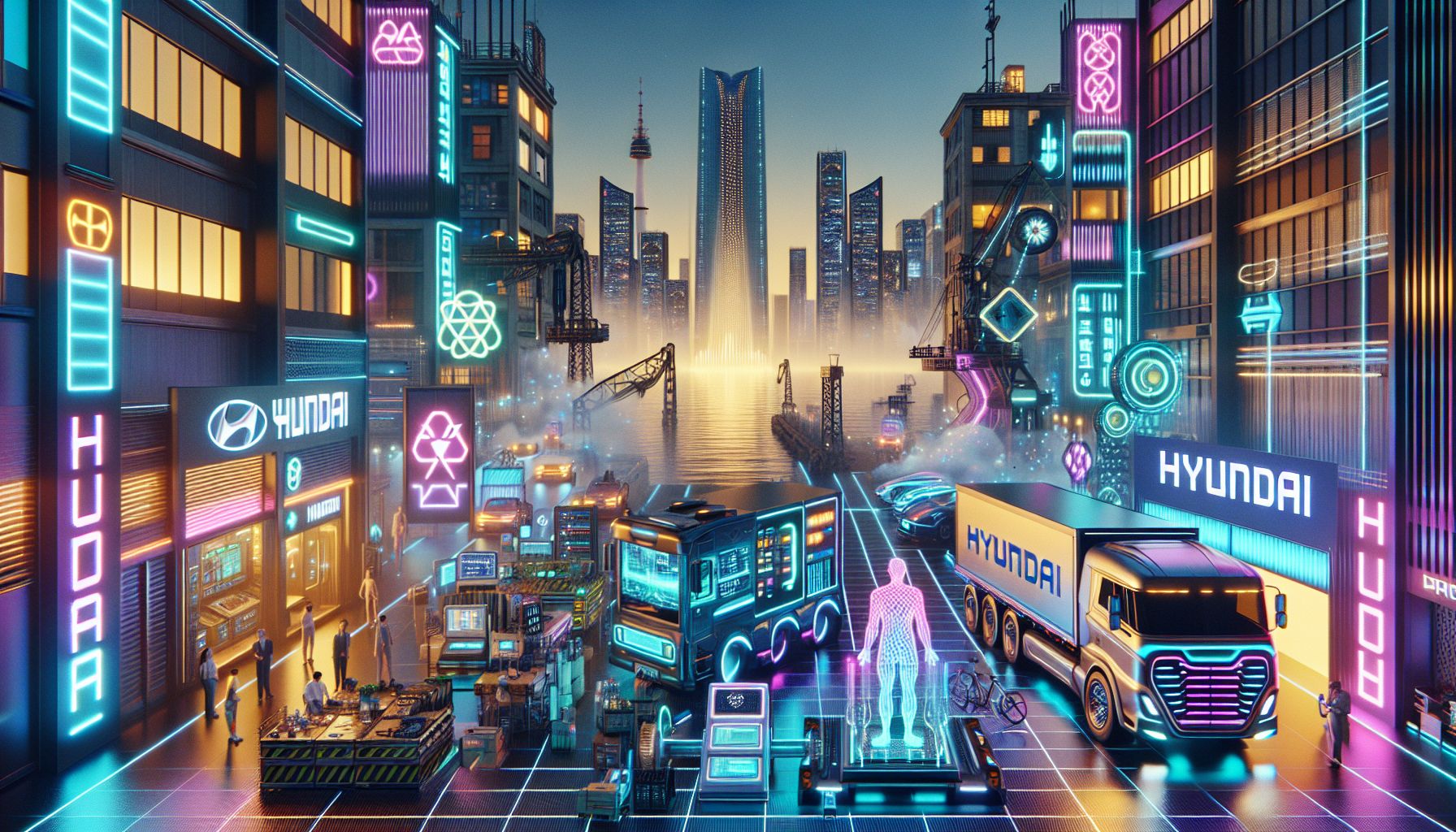Hyundai's Hydrogen Leap in Busan: Transforming Trash into Clean Energy

Busan, Friday, 6 June 2025.
Hyundai’s new deal in Busan turns waste into sustainable power by 2030, with hydrogen trucks leading the change. It’s a big shift towards greener, smarter cities.
Forging a Greener Path with Hydrogen
Hyundai’s innovative partnership with Busan is all set to revolutionise waste management, turning trash into a valuable resource. By 2030, the city plans to produce hydrogen fuel using biogas from organic waste, a move that underscores how the circular economy can fuel urban life more sustainably [1][2]. The first step? Delivering five hydrogen fuel-cell waste trucks by the end of 2025, gradually scaling up to 30 by 2028, and eventually hitting a fleet of 65 by 2028 [3].
Driving Towards Carbon Neutrality
Imagine waste trucks free of noise and annoying vibrations. Hyundai’s Xcient trucks can travel 400–500 km on a single hydrogen refill, making them perfect for heavy-duty tasks like waste collection [1]. As these trucks hit the streets, they highlight a model of urban sustainability that swaps out fossil fuels for renewable energy, aiming for carbon neutrality and lesser landfill reliance [1][3].
A Win for Investors and Innovators
Let’s chat dollars and sense. Each hydrogen truck costs about $650,000, so overcoming these upfront costs requires teamwork between public and private sectors [1][3]. However, as cities like Busan succeed, governments might lean towards offering subsidies or introducing policies that support such green initiatives—encouraging firms in the biogas and hydrogen production space to ramp up [3][4].
Ethical and Strategic Commitments
Hyundai’s commitment goes beyond just trucks. At recent forums like the FISITA World Mobility Conference, Hyundai showcased their future mobility vision, brimming with innovations [5]. But let’s not forget the strategic partners involved in this bold shift; companies focusing on hydrogen storage, fuel-cell technology, and biogas systems stand to benefit significantly [6][7].
The Road Ahead: Challenges and Opportunities
Here’s the rub—high costs of hydrogen trucks and infrastructure could pose challenges for wider adoption, especially without robust support systems [3][4]. Yet, the long-term environmental and economic benefits make it a venture worth pursuing. Long-term success will likely hinge on reducing costs further while ensuring a solid network of supportive policies and partnerships [3][4], making lads and lasses, this is a ride worth taking!
Bronnen
- www.ainvest.com
- fuelcellsworks.com
- koreajoongangdaily.joins.com
- hydrogenfuelnews.com
- www.linkedin.com
- fuelcellsworks.com
- fuelcellsworks.com